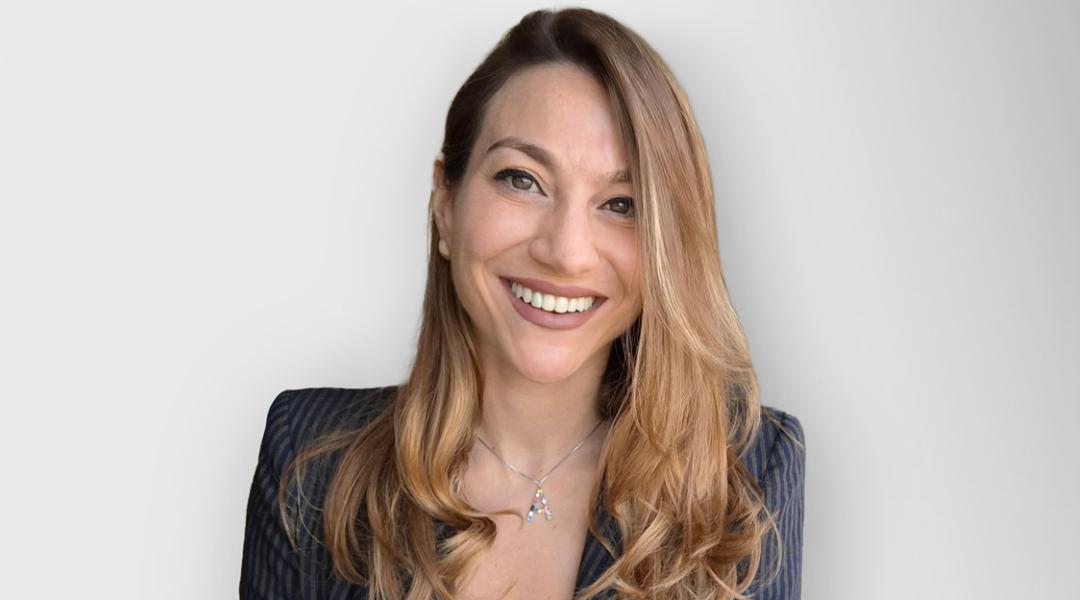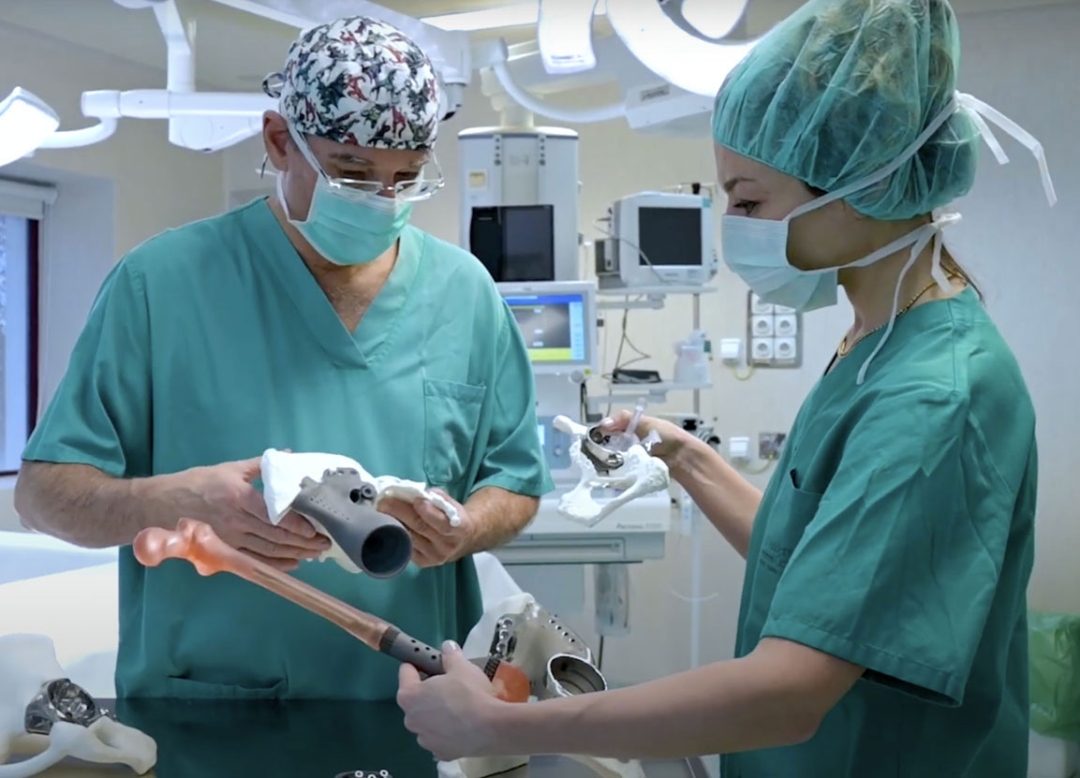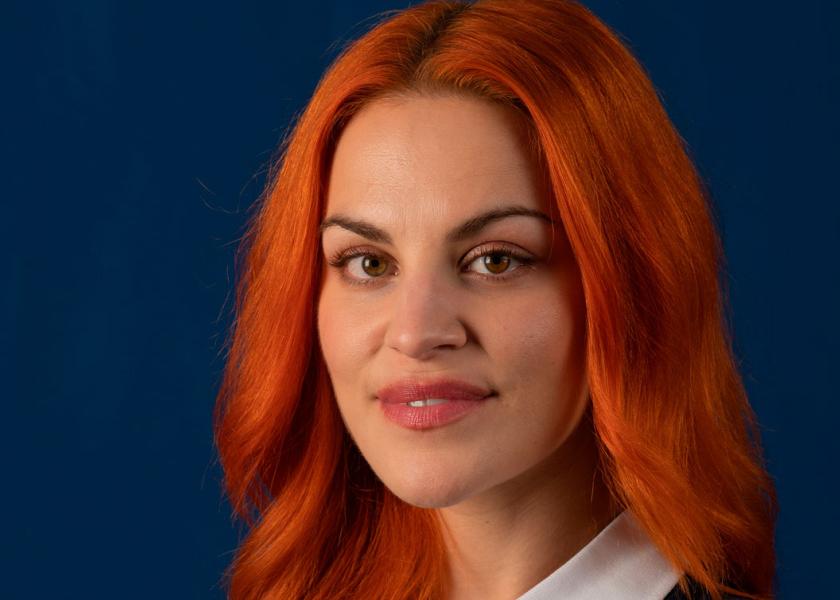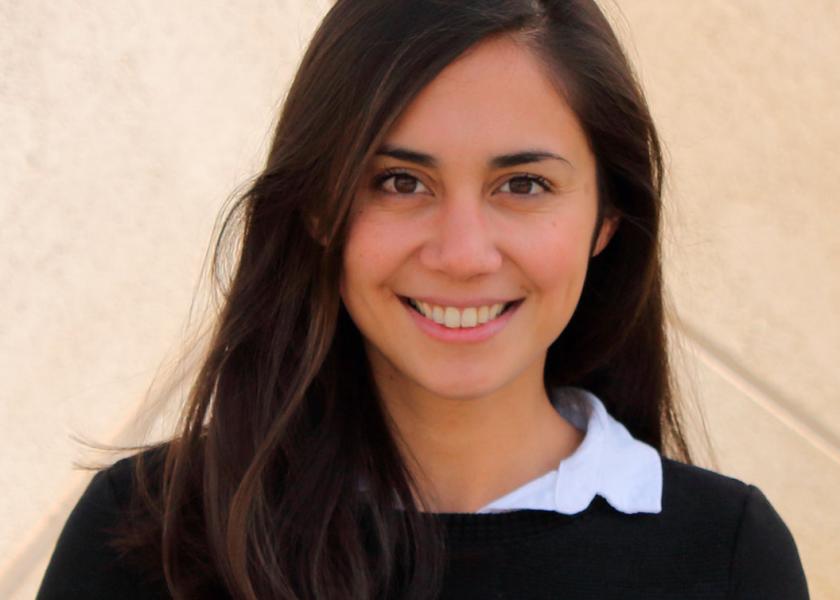Alba González
At the service of people

She wasn’t sure whether to study medicine or design, but she did know that she wanted to improve other people’s lives. Over time, biomedical engineering turned into her way of bringing together both of her passions and putting her talent at the service of her patients. Now, this winner of the 2022 National Design Award in the Young Designers category has decided to take a risk and set up her own company to democratise access to 3D prosthetics.
“My work is fascinating, and every day is a challenge.” This is how Alba González (Burgos, 1988), who has always wanted to use her training to improve people’s lives, approaches her work as a biomedical engineer. After several years of research that won her the 2022 National Design Award in the Young Designers category for “ providing solutions in complex areas such as the development of biomechanical prosthetics,” she decided to become an entrepreneur, and the result is Xcure Surgical. Her purpose is to democratise access to these kinds of prosthetics and, even though she knows it won’t be easy, she’s proud of being able to apply all the knowledge she acquired in the United Kingdom, where she spent several years, to her work in Spain. “Talent drain can be minimised with more investment in R&D&I and better working conditions for scientific careers,” she assures us. Alba’s team needs two to seven weeks for production, depending on the type of implant and the disease’s urgency, to create customised solutions for patients. Thus, without meaning to, Alba has turned into the role model she never had, which didn’t keep her from studying Industrial Engineering and Industrial Design, followed by a doctorate in Biomedical Engineering. A few days before knowing the new winners of the Mujeres a Seguir Awards —sponsored by Iberia—, we chat to last year’s winner in the Technology category.
Tell me about the research that won you the 2022 National Design Award and that has become the seed for your new business.
My research focuses on the development of customised implants manufactured with 3D printing technology and its purpose is to improve complex bone surgeries. To continue growing, I’ve founded a startup, Xcure Surgical. We create unique implants that offer alternatives for patients who have no other options because their issues cannot be treated with implants that already exist on the market, but can be with a customised therapeutic solution.
Currently, these prosthetics are very expensive and, therefore, less accessible. Is the main challenge to reduce costs to democratise access to them?
Custom-made 3D prosthetics are more expensive than standard ones and can seem like a big investment at the beginning, but they can be more worthwhile in the mid-to-long term because they reduce surgery times and, above all, make patient recovery easier by minimising the appearance of disorders caused by surgery, the need for future reoperations and other costs associated to rehabilitation. The challenge now is to improve processes so that technology can mature and thus minimise costs.
“Technology is a tool at the service of humanity and used ethically, it is an ally, not a rival. The case of 3D prosthetics is crystal clear”
Your work must be particularly rewarding. Can you remember an especially emotional case?
It’s a lovely job because you get to experience the direct impact that it has on people’s lives. For example, right now I’m developing an elbow implant with a very innovative design that will prevent arm amputation. I remember a hip I designed a few months ago for a surgeon; it was a very difficult case, but everything went well and following their recovery closely was really exciting. In general, paediatric cases are always very special.
Have you ever encountered patients who were afraid of these kinds of prosthetics?
Not generally, no. I understand that some people might be reluctant to this progress, but this is due to a lack of information; this is why I believe we need to educate people about how new technologies work and the benefits they provide, which are greater than the risks they entail. Technology is a tool at the service of humanity and used ethically, it is an ally, not a rival. The case of 3D prosthetics is crystal clear.

Alba González designs prostheses with 3D printing technology to improve the lives of patients. © Cedida por Alba González
You’ve worked at hospitals, companies, universities... What was the decision of starting your own business project like?
It was a tough decision because it involves not only a financial but also a personal investment. The risk of starting a business is high and I struggled to commit, but now I’m really happy and I firmly believe in my work, in the team and in the project, in the purpose of improving bone surgeries and democratising access to innovation.
Even though it sounds like science fiction, what progress would you like to see in your field in the next ten years?
It doesn’t have to sound like science fiction... Right now, the main barriers to progress aren’t to do with scientific development —even though improvements can be made in biomaterials or tissue engineering—, but rather in the way we provide these solutions to patients. My hope is that in the next decade, personalised implants become an accessible option for everyone.
“I’ve never felt like a role model, but thanks to the visibility I’ve had, people recognise my work and I now mentor younger female engineers”
In Spain, we are still missing careers in STEM (science, technology, engineering, and mathematics), especially among women. Can you think of a solution?
Education at schools is essential, teaching children and teenagers that there are no gendered professions. It’s also important to raise awareness about female role models in these fields to offer inspiring examples. In turn, activities can be implemented like 3D printing, robotics, or programming workshops for little ones to see that these subjects have a direct impact on the progress of an increasingly technological world.
In your particular case, where did your passion for medicine and design come from, and how did you manage to bring together both worlds?
When I had to decide what degree to study, I considered medicine and engineering. At the time, biomedical engineering didn’t exist in Spain and working in this field was unthinkable, so I ended up choosing industrial engineering, but I knew that I wanted to use that training to improve people’s lives. When I finished my studies, I discovered biomedical engineering in the UK and spent several years there. I’m proud to have brought that knowledge to Spain and to have set up my own business here is a dream come true.
“We’re all talented, but developing that talent requires dedication, perseverance, and passion. And that means facing challenges, making mistakes, learning from them, and carrying on”
You’ve said before that you never had a female role model to look up to. For upcoming generations, how important is it to raise awareness of women in STEM?
Having role models is important, finding people you look up to and who inspire you. I didn’t have them in the past, but I do now; in recent years I’ve met women, like Elena García Armada or Ana Cabrero, who have helped me understand that I wanted to become an entrepreneur and that I could do it. I’ve never felt like a role model, but thanks to the visibility I’ve had, people recognise my work and I now mentor younger female engineers who want to work in biomedicine.
Without talent you wouldn’t have gotten this far, so tell me what that word means to you.
Talent is having the skill that allows you to do something really well. This skill has an innate component, but above all it needs to be worked on. We’re all talented, but developing that talent requires dedication, perseverance, and passion. And that means facing challenges, making mistakes, learning from them and carrying on. Nurturing your talent and turning it into a purpose is key to achieving your full potential.


